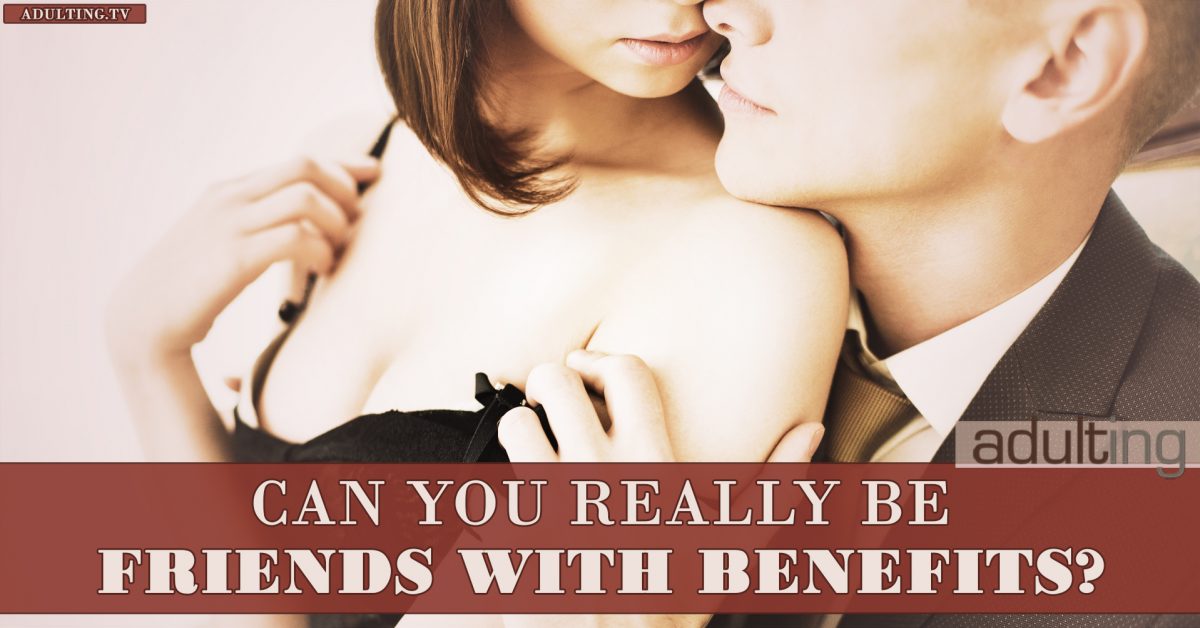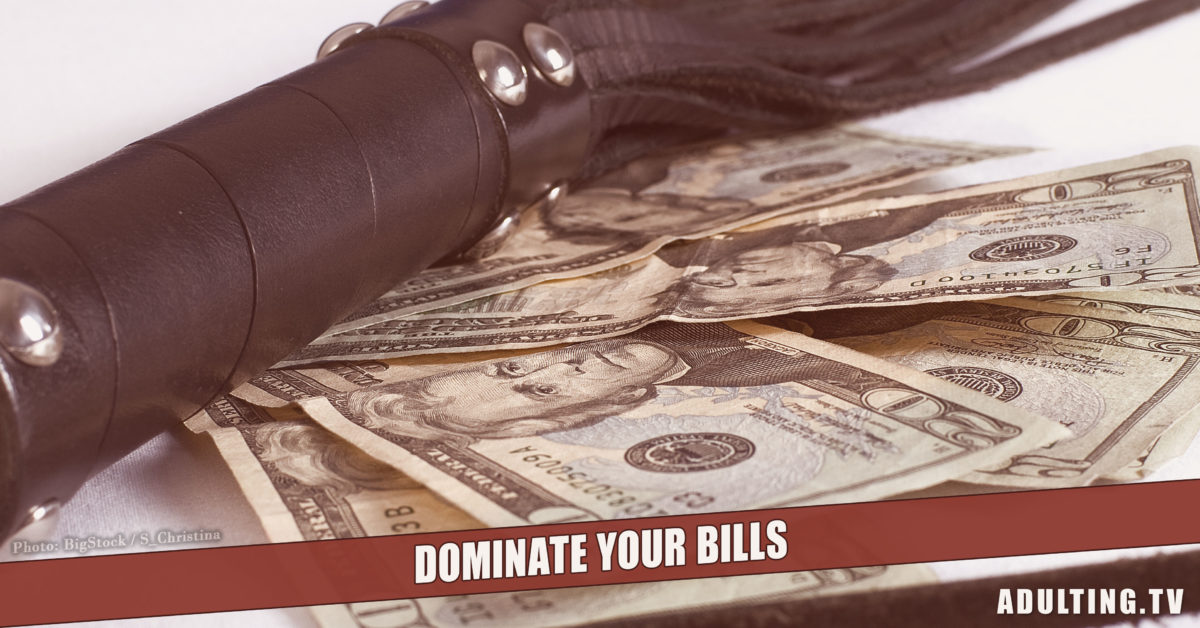Is a “friends with benefits” arrangement really possible? Can you really pull it off? I kind of tried it earlier this year, and it went OK.
But here’s the thing: while we might dream of the friends with benefits situation, I’m not entirely sure how sustainable it is over time.
Bring sexual benefits into a friendship.
According to the latest Singles in America survey from Match.com, 46% of Americans have had a “friends with benefits” relationship. This represents something of a leveling off of a trend that had been on the rise. In 2012, the number jumped from 20% to 47%, and since then, it’s been relatively stable.
It can be fun to bring these types of benefits into a friendship, especially if you’ve been experiencing something of a drought, but haven’t found someone you want to commit to. Looking for “the one” is time-consuming and sometimes difficult. A friend with benefits can be one way to meet your physical desires without a long-term commitment or the rigors of a full-on romantic relationship.
In some cases, you might discover that you and your friend plus plus are actually turning into soulmates. That can be an interesting and beneficial development that can lead to a long-term romantic or life partnership.
Of course, there are downsides to the friends with benefits model. First of all, there is the chance that one of you will decide that they want to be more than friends with a side dish of sex. The other person might not return those feelings and that can be very painful for everyone involved.
It can even ruin the friendship. It’s unfortunate because most of us don’t decide to become friends with benefits intending for the friendship to end.
Does a friends-with-benefits arrangement ever end well?
I’m still friends with every ex I’ve ever had, including the guy that asked me for a divorce. I think that’s a pretty good track record. We were able to move from romantically involved to being friends.
Does that translate well in a friends with benefits situation?
I guess it depends on who you are, and who your friend is, and the way you interact with each other. But eventually, that relationship is likely to end. At least the benefits part. Here are some of the reasons that the benefits might disappear:
- One of you finds someone else: At some point, one of you might end up finding a romantic partner. Unless you are all about the open relationship (and your new partner agrees), it might be time to cut the benefits out of your friends with benefits relationships.
- The sex just sort of peters out: You might also reach the point where the sex peters out. Maybe you just don’t do the benefits thing that much because the friend things become uppermost.
- One of you starts to do develop romantic feelings: One of the realities of sex is that it can lead to a deeper connection and feelings of love. Even though different parts of the brain are involved with sexual desire and love, there is overlap, according to a study from Concordia University. Once that happens, you might want to stop the benefits if you aren’t interested in leveling up your relationship.
This last possibility is very interesting, mainly because of the way habits form in the brain. Science Daily wrote an article about the Concordia study, quoting one of the authors, James G. Pfaus:
Love and sexual desire activate different areas of the striatum. The area activated by sexual desire is usually activated by things that are inherently pleasurable, such as sex or food. The area activated by love is involved in the process of conditioning by which things paired with reward or pleasure are given inherent value. That is, as feelings of sexual desire develop into love, they are processed in a different place in the striatum.
Somewhat surprisingly, this area of the striatum is also the part of the brain that associated with drug addiction. Pfaus explains there is good reason for this. “Love is actually a habit that is formed from sexual desire as desire is rewarded. It works the same way in the brain as when people become addicted to drugs.”
What you think of as casual sex over time can become something else if done enough. This is why friends with benefits can end up being more complicated than a couple of hook-ups or a one-night stand.
Can you maintain your friendship?
Ultimately, if maintaining the friendship is important to both of you, it will work out in the end. But it might require a little extra effort on your part.
Even though I don’t often fall into gender stereotypes, I might in a friends-with-benefits situation. According to an article on Psychology Today, women are more likely to focus on the friendship part while men are more focused on the benefits part. This is probably part of why I don’t have much of a problem moving forward. To me, the connection between us is important and vital, and that friendship matters more than anything else we might have done (or contemplated doing).
Hey, I’m not a man, so I’d love to hear a male perspective on this. Leave a comment or join the conversation in our #Adulting community on Facebook.)
At any rate, I did have someone I’ve known for a long time tell me, after our hook-up experience, that our friendship is strong enough to deal with this. And we’ve actually been in touch more often via personal messages since the *ahem* incident. Of course, it probably helps that he lives on a different continent.
Proximity probably has a lot to do with maintaining a friendship after a friends with benefits. In fact, before you embark on this type of adventure, it makes sense to carefully consider how often you will see your buddy, and how close you live to each other. Seeing each other all the time after the benefits fizzle out probably doesn’t help the cause.
Follow these rules in your FWB situation.
Setting some ground rules can help you be better friends with benefits. And by “better,” I mean getting through it without losing your friend when you lose the benefits. Here are some ideas for ground rules to follow:
- Communicate like adults: Seriously. Talk about your goals for this relationship. Be open about what you like and what you don’t. Ima repeat that. Be open. This only works if you’re both honest. And if you feel yourself developing romantic feelings, mention it ASAP. Say you want to pull back to avoid hurting the friendship and see if your sex buddy agrees. If s/he doesn’t, that’s still a sign that you need to change things up.
- Don’t act like a couple: Don’t see each other Every. Single. Day. Don’t act like a couple. Remind yourself that you’re not dating. Unless you want to become a “real” couple, you need to make sure you’re not acting like it. This includes bringing your sex buddy around to family and friend events that s/he normally wouldn’t be at.
- Remember that you’re non-exclusive: You can’t get upset when your buddy goes out with someone else. The whole point is that you’re non-exclusive. If someone starts getting jealous, it’s probably time to ax the benefits and see if you can salvage the friendship. And, it goes without saying, but I’ll say it anyway: PROTECTION. Make sure you’re properly protected because who knows what else is going on there with your sex buddy.
- Keep it off social media: For reals. It’s a Very Bad Idea to share things about your friends with benefits relationship on social media. Going through a breakup on social media is hard enough. Leave the “it’s complicated” status update and other info off. You and your sex buddy should be careful about who knows what’s going on.
- Don’t worry about sleeping over: One of the great things about FWB is that you don’t have to sleep over. Or cuddle. Or do any of those things that build emotional intimacy beyond sex. Establish ground rules and don’t expect anything that goes past that. Be careful, though, that you don’t get too attached to the situation. Otherwise, you might be really devastated when it’s over.
The whole point of FWB is to satisfy something that’s missing without making things overly complicated. It’s a fine line to walk, and not everyone can.






